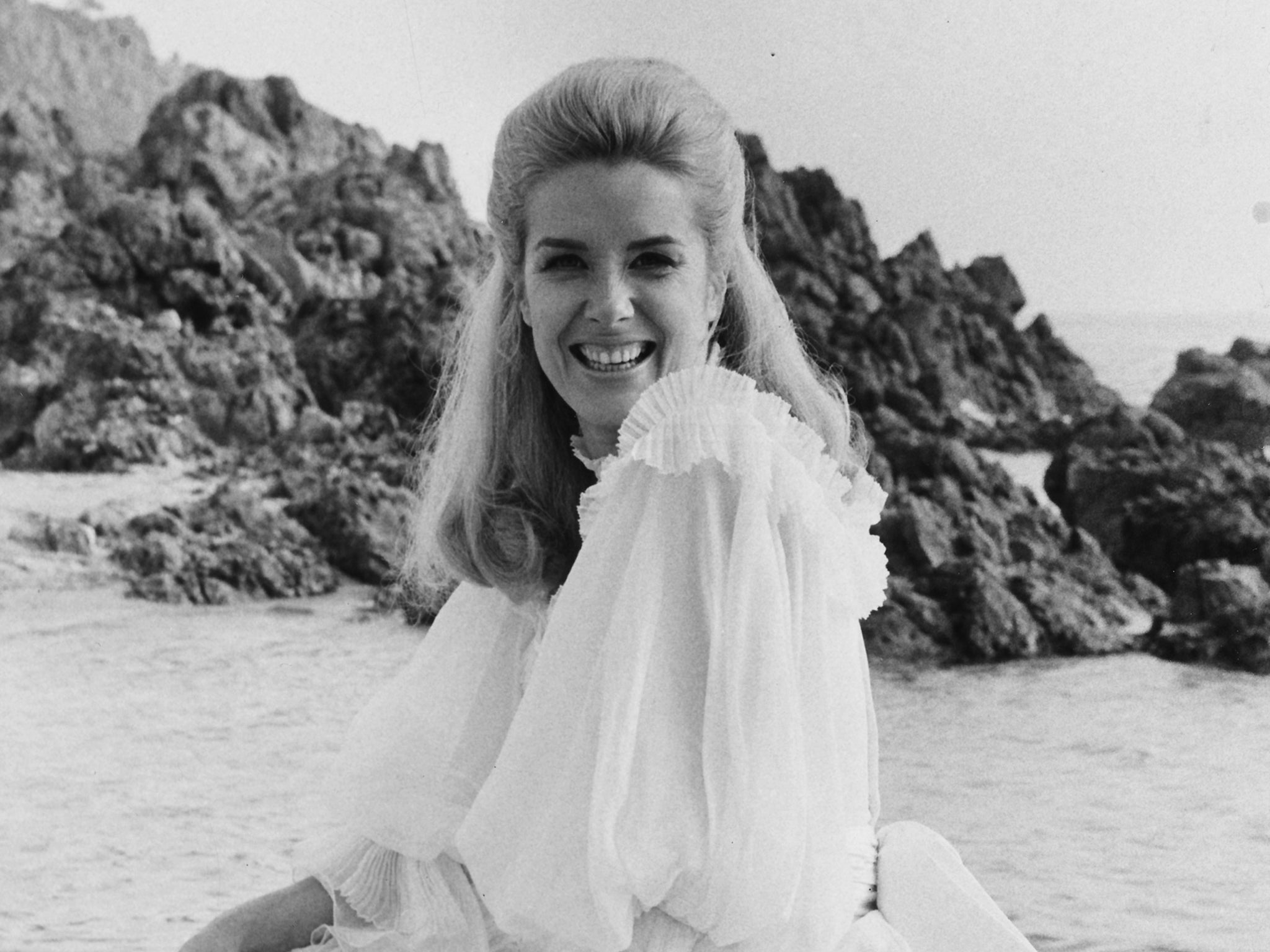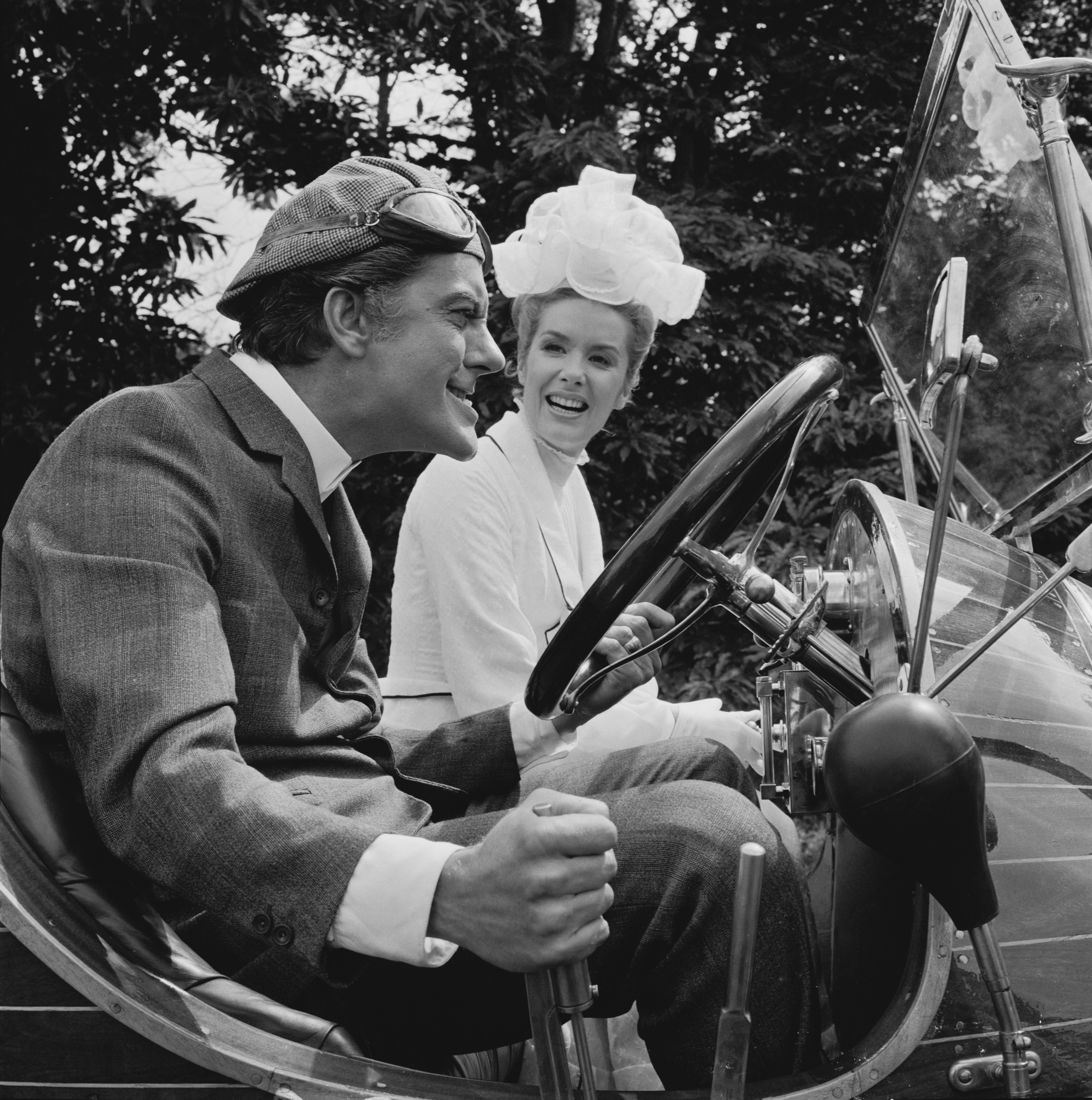Sally Ann Howes: Grand dame of British and American stage
Although she is best-known for her sugar-sweet role in Chitty Chitty Bang Bang, the actor had a glittering career spanning many mediums

Sally Ann Howes, an English-born master of musical comedy who replaced Julie Andrews in My Fair Lady on Broadway and starred as Truly Scrumptious in Chitty Chitty Bang Bang, has died aged 91.
A grand dame of the British and American stage, Howes was born into a family of actors that included her father, Bobby Howes, a staple of London theatres and music halls. She launched her career as a child actor in the 1940s, appearing in movies during school holidays before starring with her father in a West End production of Paint Your Wagon and making her Broadway debut in 1958 with My Fair Lady.
Based on George Bernard Shaw’s play Pygmalion, the musical premiered on Broadway in 1956 and ran for more than six years – a record at the time. The original cast included Rex Harrison as Professor Henry Higgins, an irascible phonetician in Edwardian London who gives speech lessons to a Cockney flower girl, Eliza Doolittle. Inheriting the Doolittle role from Andrews, who was nominated for a Tony Award, Howes said she sought “to play her as coarse and dirty-necked as I can”.
The show made Howes a media sensation in the US, where she appeared on the cover of Life magazine and ultimately sang for three presidents: Dwight D Eisenhower, John F Kennedy and Lyndon B Johnson. She starred as Doolittle for nearly a year opposite Edward Mulhare as Higgins, and ignited an unexpected debate among critics over who played the better Eliza.
“Their interpretations are considerably different,” Murrey Marder wrote in The Washington Post. “Miss Andrews is a more demure, delicate Eliza, whose voice doesn't carry too well in the capacious Drury Lane Theatre,” where she and Harrison opened the musical's West End production. “Miss Howes’ is bolder, brisker and much louder.”
Howes had by then moved from London to New York to live with her second husband, lyricist and composer Richard Adler of The Pyjama Game and Damn Yankees. She starred in his short-lived 1961 Broadway musical Kwamina, an interracial love story set in West Africa that she described as “a comment on our times”, and was also featured in a 1963 revival of the musical Brigadoon by My Fair Lady collaborators Alan Jay Lerner and Frederick Loewe.
The show ran for only 16 performances but Howes received a Tony nomination for best actress as Fiona, who lives in a mysterious Scottish village that appears for one day every 100 years before disappearing into the mist. Three years later, she reprised the role in an Emmy-winning TV movie with Robert Goulet and Peter Falk.
Although she continued to perform onstage, including as the female lead in touring productions of The Sound of Music and The King and I, she became best known for Chitty Chitty Bang Bang, the 1968 film about a flying car that fulfils children’s dreams. The lavish Hollywood musical enchanted younger crowds but disappointed most critics; a Time magazine reviewer called it “a picture for the ages – the ages between five and twelve. After that, interest is bound to slacken into hostility or slumber.”

Based on a novel by James Bond creator Ian Fleming and written for the screen by author Roald Dahl and Ken Hughes, who also directed, Chitty Chitty Bang Bang was whimsical and occasionally frightening, with an explosive car accident and a villainous baron who hires a “child catcher” to snatch children off the streets. Describing the movie, Howes liked to say that “if you put Mary Poppins together with James Bond, this would be their child”.
As Truly Scrumptious – a name seemingly plucked from one of Fleming's 007 stories – Howes played the wealthy daughter of a candy tycoon and romantic interest of a nutty inventor and father of two, Caractacus Potts (Dick Van Dyke), who builds a magical car named Chitty Chitty Bang Bang. Serenading the car in the movie's earworm, Oscar-nominated title song, she sings, “You're sleek as a thoroughbred/Your seats are a feather bed/You'll turn everybody's head today.”
Howes was also featured in songs including “Toot Sweets” and “Doll on a Music Box,” which she performed in the role of a toy doll, dressed in a dirndl and moving her arms in stiff, robotic motions while spinning atop an oversized music box.
The film was released at a time when big-budget movie musicals were increasingly rare, during a turbulent year of riots, political assassinations and bloodshed in Vietnam. Although it reportedly failed to recoup its budget, earning roughly $8m during its theatrical run, it acquired a devoted following and became a holiday favourite. After her death, Howes's nephew Toby Howes said on Twitter that his family had hoped she “might hold on until” the movie was screened on Christmas, “as this would have greatly appealed to her mischievous side”.
Sally Ann Howes was born in London on 20 July 1930. Her mother, Patricia Malone, was an actor; her maternal grandfather, JAE Malone, produced and directed Broadway musicals.

At age 13, she made her movie debut in Thursday's Child (1943), playing a schoolgirl who becomes a successful child actor. Over the next few years, she appeared in Dead of Night (1945), a celebrated horror anthology film with Michael Redgrave, as well as in literary adaptations such as The Life and Adventures of Nicholas Nickleby (1947) with Derek Bond and Anna Karenina (1948) with Vivien Leigh.
Howes was featured as an adult in The Admirable Crichton, also known as Paradise Lagoon (1957), about a family shipwrecked in the South Pacific. She later appeared on TV shows including Mission: Impossible, The Virginian and Marcus Welby, MD, although she increasingly focused on the stage. “I just loved connecting with an audience,” she told The Palm Beach Post. “The theatre is a drug. The problem is that to be remembered, you have to do films.”
On Broadway, she appeared in the 1965 musical comedy What Makes Sammy Run?, which ran for 540 performances, and earned a Drama Desk Award nomination for playing the ailing Aunt Julia Morkan in James Joyce's The Dead (2000), a musical adaptation of Joyce's short story. She also starred as the actress Desiree Armfeldt in a 1990 New York City Opera production of Stephen Sondheim's A Little Night Music, delivering a rendition of “Send in the Clowns” that “captured the song's strange blend of irony and passion, ice and desire more truly than any performance I've ever heard,” according to music critic Tim Page in Newsday.
Her first marriage to theatre actor Maxwell Coker ended in divorce, as did her marriages to Adler and Hollywood money manager A. Morgan Maree III. In the early 1970s, she married literary agent Douglas Rae, who died in September. Complete information on survivors was not immediately available, but Howes had adopted two sons from Adler's earlier marriage: Andrew Hart Adler, an artist who survives her, and Christopher Edward Adler, a lyricist and theatre director who died in 1984.
Nearly half a century after she starred in My Fair Lady, Howes played Henry Higgins's mother in a 2007 touring production of the musical. She once recalled that debuting as Eliza Doolittle was “probably the most exciting day of my life, professionally”, although it got off to a difficult start. Director Moss Hart had slotted her for a Saturday matinée before Andrews left the show to give Howes a chance to warm up for the critics. When Hart announced the replacement to the audience, “there was pandemonium,” Howes told Playbill magazine. “You could hear the audience muttering ‘Sally Ann Howes? Who is she?’”
“I thought, ‘Well, I might as well just relax and enjoy this.’ I’m always nervous before a performance, but I felt that I could only be better than their expectations. I didn't want to have to live up to anything. We stopped the show with ‘The Rain in Spain,’ and then again with ‘I Could Have Danced All Night.’ And the audience fell in love with me, and I with them. I've been in love with American audiences ever since.”
Sally Ann Howes, actor, born 20 July 1930, died 19 December 2021
© The Washington Post

